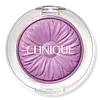What's inside
What's inside
 Key Ingredients
Key Ingredients

 Benefits
Benefits

 Concerns
Concerns

 Ingredients Side-by-side
Ingredients Side-by-side

Hdi/Trimethylol Hexyllactone Crosspolymer
Cetearyl Ethylhexanoate
EmollientDimethicone
EmollientDicalcium Phosphate
AbrasiveSqualane
EmollientGlycerin
HumectantZinc Stearate
Cosmetic ColorantChondrus Crispus Extract
Skin ConditioningLauroyl Lysine
Skin ConditioningPolysorbate 80
EmulsifyingSilica
AbrasiveTin Oxide
Abrasive1,2-Hexanediol
Skin ConditioningEthylhexylglycerin
Skin ConditioningCaprylyl Glycol
EmollientPentaerythrityl Tetra-Di-T-Butyl Hydroxyhydrocinnamate
AntioxidantMica
Cosmetic ColorantCI 77891
Cosmetic ColorantCI 77491
Cosmetic ColorantCI 77492
Cosmetic ColorantCI 77499
Cosmetic ColorantCI 77000
Cosmetic ColorantCI 77163
Cosmetic ColorantCI 77400
Cosmetic ColorantCI 75470
Cosmetic ColorantCI 77289
Cosmetic ColorantCI 77288
Cosmetic ColorantCI 77510
Cosmetic ColorantCI 77742
Cosmetic ColorantCI 77007
Cosmetic ColorantCI 42090
Cosmetic ColorantCI 45370
Cosmetic ColorantCI 15850
Cosmetic ColorantCI 45380
Cosmetic ColorantCI 45410
Cosmetic ColorantCI 73360
Cosmetic ColorantCI 17200
Cosmetic ColorantCI 15880
Cosmetic ColorantCI 19140
Cosmetic ColorantCI 15985
Cosmetic ColorantHdi/Trimethylol Hexyllactone Crosspolymer, Cetearyl Ethylhexanoate, Dimethicone, Dicalcium Phosphate, Squalane, Glycerin, Zinc Stearate, Chondrus Crispus Extract, Lauroyl Lysine, Polysorbate 80, Silica, Tin Oxide, 1,2-Hexanediol, Ethylhexylglycerin, Caprylyl Glycol, Pentaerythrityl Tetra-Di-T-Butyl Hydroxyhydrocinnamate, Mica, CI 77891, CI 77491, CI 77492, CI 77499, CI 77000, CI 77163, CI 77400, CI 75470, CI 77289, CI 77288, CI 77510, CI 77742, CI 77007, CI 42090, CI 45370, CI 15850, CI 45380, CI 45410, CI 73360, CI 17200, CI 15880, CI 19140, CI 15985
Octyldodecanol
EmollientIsononyl Isononanoate
EmollientDicalcium Phosphate
AbrasiveSynthetic Fluorphlogopite
Caprylic/Capric Triglyceride
MaskingPentaerythrityl Tetraisostearate
EmollientSynthetic Wax
AbrasiveBis-Diglyceryl Polyacyladipate-2
EmollientPolyethylene
AbrasiveSilica Silylate
EmollientNylon-12
Candelilla Cera
EmollientDisteardimonium Hectorite
StabilisingTocopheryl Acetate
AntioxidantPentaerythrityl Tetra-Di-T-Butyl Hydroxyhydrocinnamate
AntioxidantTalc
AbrasiveTin Oxide
AbrasiveBHT
AntioxidantCI 45410
Cosmetic ColorantCI 42090
Cosmetic ColorantCI 15850
Cosmetic ColorantCI 77891
Cosmetic ColorantCI 77491
Cosmetic ColorantOctyldodecanol, Isononyl Isononanoate, Dicalcium Phosphate, Synthetic Fluorphlogopite, Caprylic/Capric Triglyceride, Pentaerythrityl Tetraisostearate, Synthetic Wax, Bis-Diglyceryl Polyacyladipate-2, Polyethylene, Silica Silylate, Nylon-12, Candelilla Cera, Disteardimonium Hectorite, Tocopheryl Acetate, Pentaerythrityl Tetra-Di-T-Butyl Hydroxyhydrocinnamate, Talc, Tin Oxide, BHT, CI 45410, CI 42090, CI 15850, CI 77891, CI 77491
 Reviews
Reviews

Ingredients Explained
These ingredients are found in both products.
Ingredients higher up in an ingredient list are typically present in a larger amount.
Ci 15850 is the pigment color red. It is an azo dye and created synthetically.
Azo dyes need to be thoroughly purified before use. This allows them to be more stable and longer-lasting.
This ingredient is common in foundations, lipsticks, and blushes. This color is described as brown/orangey red.
It has many secondary names such as Red 6 and Red 7. According to a manufacturer, Red 6 usually contains aluminum.
Learn more about CI 15850Ci 42090 is a synthetic dye created from petroleum. It is used to give a bright blue color to cosmetics, medicine, and food.
CI 45410 is a synthetic red-pigment and dye.
It often goes by both Red 28 or Red 27; manufacturers label both ingredients as CI 45410.
This dye is commonly found in makeup because it imparts a vivid color. Some types of this dye change color based on pH level and interaction with moisture:
Your skin has a natural pH of around 4.5 - 5.5.
According to the FDA, CI 45410 is not permitted for use in eye products.
Red 27 is a flourescein dye and commonly used as a fluorescent tracer in medicine.
Learn more about CI 45410Ci 77491 is also hydrated iron III oxide. It's sole purpose is to give a red/pink hue to products.
Iron III oxides are classified as inorganic chemicals for coloring.
Synthetically created Ci 77491 is considered safer than those naturally found. This is because the synthetically created version may contain less impurities. Iron oxides are generally non-toxic and non-allergenic.
Learn more about CI 77491Ci 77891 is a white pigment from Titanium dioxide. It is naturally found in minerals such as rutile and ilmenite.
It's main function is to add a white color to cosmetics. It can also be mixed with other colors to create different shades.
Ci 77891 is commonly found in sunscreens due to its ability to block UV rays.
Learn more about CI 77891Dicalcium Phosphate is an exfoliant.
Pentaerythrityl Tetra-Di-T-Butyl Hydroxyhydrocinnamate (long name, huh?) is a synthetic antioxidant.
It is used to help stabilize other antioxidants or prevent the color from changing in a product.
As an antioxidant, it helps fight free-radical molecules. Free-radical molecules are capable of damaging our cells and other genetic material. Thus, antioxidants may reduce the signs of aging.
This ingredient is oil-soluble.
Learn more about Pentaerythrityl Tetra-Di-T-Butyl HydroxyhydrocinnamateTin Oxide is an inorganic oxide used to add opacity and volume to a product. In nature, it is already found in mineral form. The main ore of tin is an opaque and shiny mineral called casseterite.
Tin Oxide helps remove translucency in a product, or make it more opaque. Besides adding opacity, tin oxide is used for bulking to add volume.